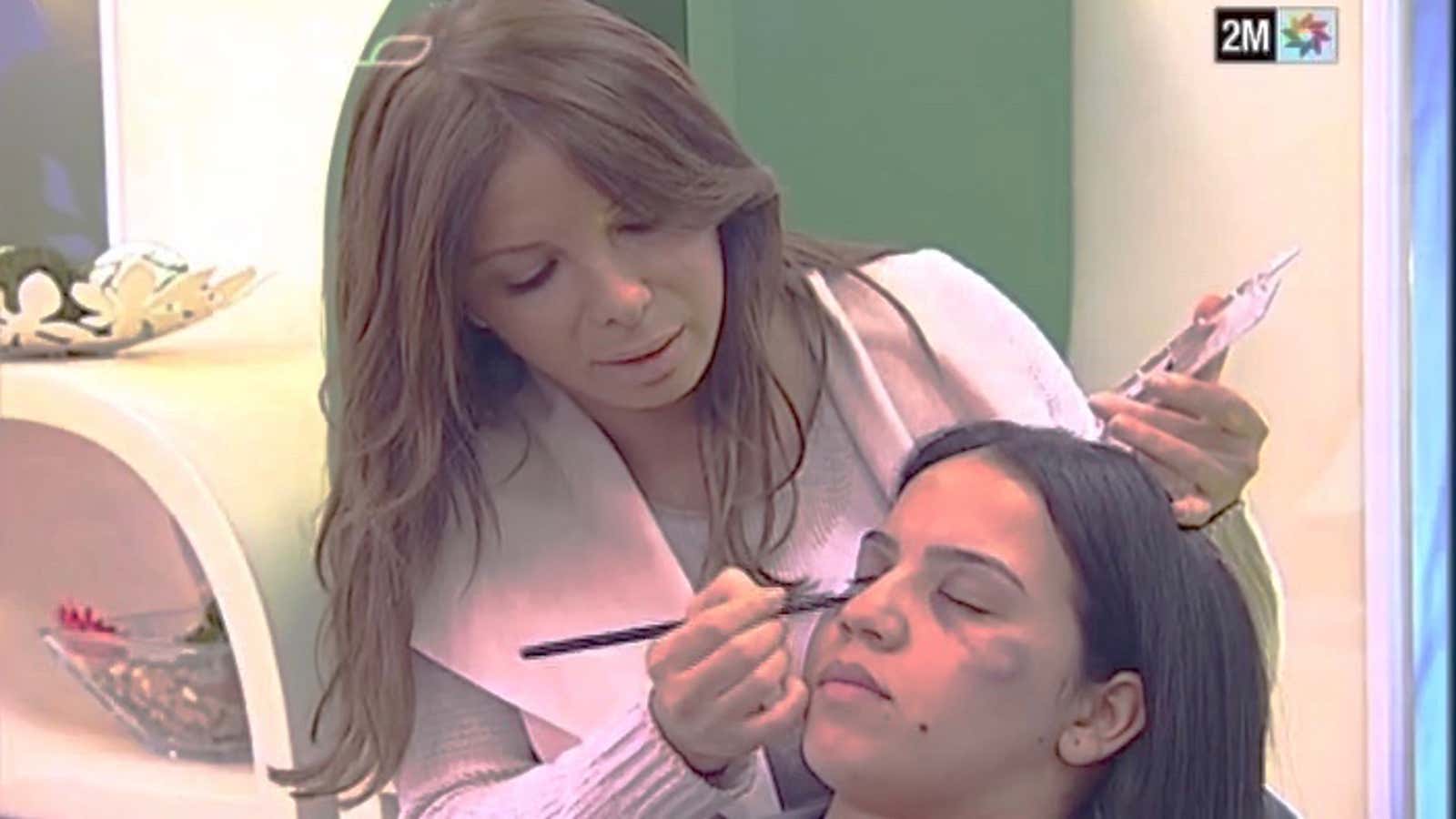A Moroccan television channel has offered women tips on how to cover up bruises from domestic abuse, in a country where violence against women is already high.
Sabahiyat, a women’s magazine show on channel 2M, invited a make-up expert to teach domestic violence survivors how to hide the evidence of a beating. With lighthearted background music and a perky tone, the expert gave a tutorial on a model with bruised eyes (likely from make-up) on how to use contouring and blending to hide a swollen face.
“Make sure to use loose powder to fix the makeup, so if you have to work throughout the day, the bruises don’t show,” the expert said, according to the Independent. She then went on to recommend the best brands of concealers and foundation that offered heavy coverage.
“We hope these beauty tips will help you carry on with your daily life,” the host said pleasantly at the end of the segment.
Outraged Moroccan gender activists launched an online petition to demand that the country’s audiovisual communication authority punish the show and the channel. They were further incensed that the show aired on Nov. 23, two days ahead of the International Day for the Elimination of Violence Against Women.
“Do not cover domestic violence with makeup, condemn the aggressor!” said the petition. The group also posted a link to the since removed video.
Channel 2M apologized on its Facebook page, calling the feature and “editorial error of judgment” and reaffirmed its commitment to women’s rights.
Make-up artist Lilia Mouline said she was in no way endorsing domestic violence, but defended her tutorial.
“We are here to provide solutions to these women who, for a period of two to three weeks, are putting their social life aside while their wounds heal,” said Mouline. “These women have already been subjected to moral humiliation and do not need to also have others looking at them.”
“Makeup,” she added, “allows women to continue to live normally while waiting for justice.”
Human Rights Watch has highlighted a high incidence of domestic violence in Morocco. A 2010 national survey in Morocco showed that 63% of women reported physical, psychological, sexual or economic violence. Of these women, 55% said their husbands committed the violence. But only 3% of women who endured violence at the hands of their spouses reported it to the police.
